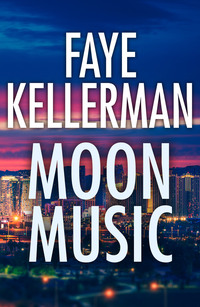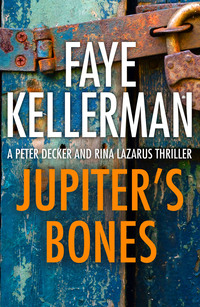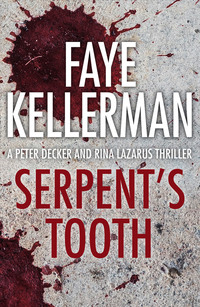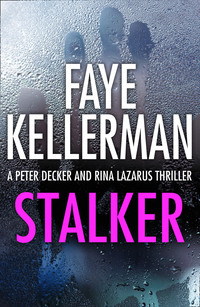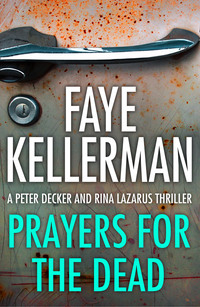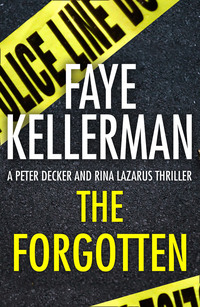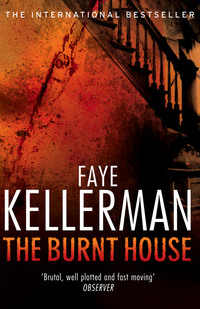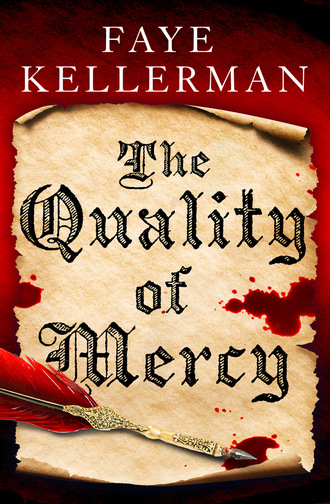
Полная версия
The Quality of Mercy
The corpse will be burnt at the conclusion of the ceremony—the grand finale that serves as a caveat for those who contemplate straying from the catechisms of the Church.
Don Henrique turns his attention to the woman next to me. She, like me, is a relapso—a converso found guilty of Judaizing. She admits her guilt freely. She begs for another chance, not for her, but for her unborn child. Her pleas, though acknowledged, merit her no special favors. She makes a final effort to save her baby. Let her be punished by death, but cannot the tribunal wait until after the baby is born?
The answer is no. She is garroted after reaffirming her faith to the cross.
Three more men are placed in the iron collar—two for Judaizing, one for sodomy with his stableboy. Two more women. Another man. Another woman. Deep into the night until Don Henrique eyes the last victim—me.
I am nineteen, with gray eyes that used to shine like newly pressed coins. Once my hair was beautiful. It is now a cap of untamed dusty curls that fall past my waistline. My face is covered with sores, my lips cracked open, oozing blood. My teeth are gone, having been rooted out with tongs as punishment for biting a jailer. My nude gums are uneven nodules of angry red flesh.
A guard gags me. I fight viciously against leather restraints that bind my arms and legs. Two guards are holding me in place, but the sweat on their faces bespeaks the intensity of my struggles.
“Teresa Roderiguez!” the Inquisitor announces. “Filthy wretch of a daughter. Have thee anything to say in behalf of thy defense?”
I nod.
“Remove the morgaza,” orders Don Henrique.
As one of the sentries pulls off the gag, I yell,
“A pox on thee!”
Don Henrique stiffens with rage. I am glad. He shouts, “Wretched, filthy dog! Save thy soul!”
I spit in his direction.
The Inquisitor raises his fist and cries, “Thou shalt burn in Hell continuously lest ye make confessions!”
I say, “I piss on thy confessions!” I spit again.
“Putrid agent of the Devil—”
“I am a Jew! I shall die a Jew!”
“Aye, the witch dost admit her heresy!” Don Henrique says to the audience. He faces me. “Thy ghastly, bull-dunged body shall be a playmate for the Devil lest thou make thy confessions to Christ—”
“I shit on thy Christ! Shma Yisroel, Adonai—”
“Silence! Gag the filth!”
The rag is stuffed back into my mouth.
“Light the dog’s feet!”
A torch is held under my soles. The flames tickled, then burned the callused flesh, causing it to blister and wrinkle like roasted chestnuts. I scream. The agony causes me to buck harder than before.
“Have thee something to say now, Teresa Roderiguez?”
I nod.
“Remove the morgaza,” the Inquisitor says.
A sentry sighs and pulls the rag out of my mouth.
I scream, “Shma Yisroel, Adonai—”
“Replace the morgaza! For thy obstinance, bitch, shalt thou burnest. To the quemadero shalt thou be placed alive, and there shalt thou be raped by the Devil for eternity!”
The guard pulls me to the stake. I fight him, attempt to land blows and kicks with my bound arms and legs.
It is useless.
As I thrash, they strap me onto the pyre and the Inquisitor offers his torch to King John. His Royal Highness rises, straightens his cape, then takes the arm of his Queen. Both monarchs step down from their thrones and, heavily guarded, walk to the pyre where I am jerking and twitching. The torch passes from the Inquisitor to the King, then again from the King to the Queen. With the help of her husband, the Queen grazes the torch against the bottom layer of the pyre and the wood erupts into flames.
As the fire creeps upward, toward my feet, the crowd begins to stir. Smoke soon envelops me, the hot breath of the stake erupting into an open conflagration of skipping plumes. I howl in pain, then cry out a single word—Adonai.
I hear the crackle of flames, the screams and cheers of the crowd, the bleating of goats. I smell my own burnt flesh …
I am going.
I am gone …

Chapter 2
As the last bits of dirt were shoveled over the grave, William Shakespeare arose and dusted clots of mud and loose earth from his stockings. He looked down at the fresh soil, still stunned by the sudden loss of his mentor, his best friend, Henry Whitman. What villain had done such a foul deed, slaughtered a man on the open road? Shakespeare shuddered as he pictured Whitman dying in that muddy sheep’s cot, his bones cold and stiff from the chilled northern air. The body had been found by a shepherdess, the rapier still embedded in Harry’s back. It had pierced his heart.
Dear God have mercy upon his soul and rest be to his ashes.
Harry’s demise. A surprise attack from a hidden enemy or a madman? The culminating act of a heated quarrel? Always clever—even when sorely drunk—Harry had been an expert improviser, had talked his way out of many tense situations.
A good player must be creative, Harry had told him once. If the book is less than perfect, it’s up to the man on stage to make amends.
Poor Harry. Performing his final scene without an audience. The ultimate insult for an actor. In life, periods of solitude were blessings. Dying alone was a bitter curse.
Rubbing his gloved hands together and tightening his cloak, Shakespeare stared off into the gray landscape. The cemetery was four miles from Bishopsgate, an hour’s walk from London—a long walk when the heart was heavy with sadness. He turned to his right and spotted an incoming funeral train about two hundred yards to the north—a long line of mourners holding banners, torches, and scutcheons. Squires, bearing the family’s coat-of-arms, were followed by blue-gowned servants. Evidence of a man of much means: the deceased had been a gentleman. The casket, draped in black, plodded through the fog as if it had been cast into choppy waters. The funeral party soon came into sharper view. Beyond the staff there were very few mourners. Very few had shown up at Whitman’s funeral as well. A day for small funerals.
The incoming party passed to the right of Harry’s grave, steadily crunching wet grass underneath leather soles. Shakespeare returned his eyes to the grave, almost expecting Whitman to pop his head up and claim his entire demise was jest. When that didn’t happen, he began to walk away.
He hadn’t gone more than ten feet when he felt the presence of eyes upon him—an eerie, intangible touch that crept down his spine and grabbed his legs. He spun to his left, in the direction of the gentleman’s funeral, and saw a motionless, veiled woman appearing to stare at him. Transfixed by her image—a black icon enveloped by shimmering air—he stared back. Delicately, she lifted her veil and regarded him further. She was young, Shakespeare noticed immediately, and beautiful. Her eyes were steely gray, yet burned like coals afire. Her complexion was flawless—milky white with a hint of blush on high arches of cheekbone. Her lips were full and slightly parted, emitting small wisps of warm breath. Her brow and most of her hair were shadowed by hat and veil, but several loose tresses streamed alongside her cheeks and gleamed as black and silky as the fur of a witch’s cat. Statuesque but hazy, as if chiseled out of the clouds that surrounded her, she seemed but a dream.
“Rebecca,” a distant voice said.
The woman didn’t respond.
The voice suddenly took the shape of a man. An elderly gentleman with a sizable belly and a comely red beard, dressed in a knee-length physician’s gown. The cloths of his vestments were not wool or linen, but silk and velvet, the leather of his boots polished to a high shine.
“Rebecca,” he repeated. “Grandmama needs your help.”
Immediately, the woman lowered her veil and caught up with the rest of her party.
Shakespeare felt a tap on the shoulder and jumped. It was only Cuthbert. His eyelids drooped with fatigue, his hazel eyes were red and watery. Like his famous brother, Richard Burbage, Cuthbert was well developed, with thick lips, high cheekbones, and a bulbous nose. The main difference between the two was their voices—Richard’s was deep and melodious, Cuthbert’s thin and tinny. He wasn’t much older than Shakespeare, yet he always walked with a stoop reserved for men twice his age. He placed his hand gently on Shakespeare’s shoulder.
“Your roving eye shows no respect for the solemnity of the occasion,” Cuthbert said kindly.
“Reproach me not,” said Shakespeare. “It was she who engaged me.”
“Who was she?” asked Cuthbert.
“I know not.”
“Save that she is beautiful.”
Shakespeare smiled. “My eye isn’t alone in its wanderings.”
“I admit it to be the truth,” Cuthbert said. “She was a lovely spirit amid all this death.” He paused, then said, “Harry’s death is a great loss for all of us. But I know what Whitman meant to you, Willy. I’m sorry.”
Shakespeare said, “Whitman was a drunk, a braggart, and a carouser. He constantly floundered in a sea of mischief, coming periously close to drowning until someone—usually me—had the decency to rescue him. This time I wasn’t there. Whitman was a millstone about my neck.”
“You don’t mean that,” Cuthbert said.
“Don’t I?”
“You’re angry with him.”
“How can you be angry at a corpse?”
But he was angry. Enraged! And guilty! If only he had been there. In the early days it had been the other way around—Harry the nursemaid, he the baby. Shakespeare had been nineteen at the time, void of any marketable craft. A convicted poacher, he’d been expelled from his native shire of Warwick because he hadn’t been able to pay the stiff fine and had been too full of pride to ask his in-laws for help. He packed a bag and bid good-bye to Anne and the children, swearing to send them all his money just as soon as he was hired by a troupe. But after living on the streets for six months, his only income pennies for lyrics he’d written for troubador songs, Shakespeare had become despondent. No one would hire him as a player, no one was interested in reading his playbooks.
It had been desperation that made him seek out Whitman. The famous actor, though known to be moody and drink in excess, had sudden bouts of unexplained generosity. After one of Whitman’s productions, Shakespeare approached him, fully expecting to be rebuffed. Though there was no room in the fellowship for another itinerate player, Whitman agreed to read Shakespeare’s play.
And read it Harry did, grunting, muttering to himself as he sorted through the uneven scraps of paper on which the lines were written. Shakespeare couldn’t afford anything as luxurious as unused paper. When Harry had finished, he calmly handed Shakespeare back his play and asked what he knew about horses. That was it. Not a single comment on his work, just what did he know about horses.
Shakespeare told Harry that he knew much about grooming—a bald lie—and was hired on the spot. His first real work in London—tending the horses of the gentleman playgoers. He’d been so grateful to Harry for the opportunity.
A few days later Shakespeare burned the book. It remained forgotten until six months later. Harry had been voicing one of his many soliloquies on stage when he started to improvise using lines from Shakespeare’s ill-fated play. The rogue had committed the book to memory as he read it! Afterward, in a tavern, of course, Harry begrudgingly gave Shakespeare a word or two of credit for the well-received lines he’d orated.
Shakespeare looked back at Harry’s grave. Only Whitman’s widow and her parish priest remained, the other members of the fellowship having already begun the walk back to London. Cuthbert followed Shakespeare’s eyes and said,
“Poor Margaret. What will she do? We’ll have to help.”
“Such were my intentions,” Shakespeare said.
“What have you in savings?”
“Four crowns—two are in my doublet.”
“Good luck at the cockfights over the year?”
“Not so,” Shakespeare replied. “I’ve simply been saving my coins. Anne should lack nothing.”
“What a liar you be,” said Cuthbert, grinning. He quickly added: “A statement made in jest, dear cousin.”
“I see you value your ballocks.” Shakespeare laughed. “In truth, perhaps a bet or two did turn up sweet. Now, how does a gentleman offer the widow money without offending her honor? Margaret’s a woman sated in pride.”
“Yes, a problem.” Cuthbert broke into a series of spasmodic coughs. “Then this is what you do. You must lie—in good faith, of course.”
“How so?”
“Tell her the money was owed to her husband. He had lent you the pounds when your debts mounted, and had never told her lest he sully your image in her gentle mind. If it pleases her, she may take her just due.”
“She won’t take my money.”
“You approach her with a humbleness of tone, yet insistence in your voice. The hooded eyelid, a grave downturn of the lip. Marry, Will, you’re a player! Use your skills and convince the poor widow.”
“Aye, a player I am,” Shakespeare said. “But she was the superior player’s wife.”
Cuthbert coughed and nodded. “True. But now she’s stricken with grief. Her finely honed senses have been dulled.” He nudged Shakespeare in the ribs. “The priest is leaving her alone. You have opportunity. Make the most of it.”
Shakespeare nodded and approached the grieving widow. She was a tall woman with colorless eyes, the lids red and puffy with sorrow. Because her veil was up, the frosty air had bitten raw her cheeks and nose. She held in her hand a sprig of rosemary which she fingered absently.
Such pain etched on her face, he thought. It served to increase his own.
“William,” she said quietly.
“Margaret.” He kissed her on the cheek then lowered his head.
“Harry was a good soul, wasn’t he?” she asked.
“Yes, he was.”
“I loved him, Willy.”
“I loved him as well,” Shakespeare said softly. “He was my brother in spirit if not in flesh. I’ll miss him dearly.”
“So will we all,” Margaret said. “At least he’s not departed in vain. Nine living souls will attest to that.”
“How are the children faring?”
Margaret sighed. “Their father’s death leans heavily on their legs, but with God’s help they shall keep their balance.”
“May God shine his love on them.”
“Thank you,” Margaret whispered.
Shakespeare held her hands. Margaret had always impressed him as being a strong woman. She had to be. Nine children and a husband who was never home. But Shakespeare never heard her complain. Harry had always supported his family quite well.
Shakespeare cleared his throat. “I have something I must give you,” he said.
“I’m not in want of anything.”
“Nor do I claim you to be. I simply want to pay you back for money I borrowed from Harry.” Shakespeare reached into his doublet and took several gold coins. “It’s long overdue.”
Margaret said, “Harry did not make it a habit to lend money, Will. You, more than anyone, should be aware of that. Ye men! Cuthbert had tried the same tactic and was no more successful.”
The scoundrel, Shakespeare thought. Instructing me, knowing all the while I would fail. He sighed to himself.
“I pray you, Margaret,” he said. “Take it so I may do honor to my mentor’s widow. The favor will be yours.” He extended his hand toward her. “Please.”
Slowly, Margaret reached for the crowns, then retracted her hand. “If I’m in need, dear Will, I’ll call you. For now, let’s leave the matter untouched. Agreed?”
“Agreed.” Shakespeare stuffed the coins back into his doublet.
“Aye, such times we live in, Will,” Margaret said, walking away from the grave. “An honest man cannot traverse the land without fear of the bastard highwaymen.”
Shakespeare said, “Were I to find the cutpurse responsible for this act, I’d give him his entitlement. Bait for the unchained bear would be an appropriate death.”
“Aye, make it slow and painful,” Margaret added.
“And gruesome.”
Margaret laughed hollowly. “We’re as bad as heathens. Christians do not engage in this kind of speech.”
Shakespeare said nothing.
“Aye, Will, you are as Harry. Incorrigible.” Margaret sighed. “How I yearn for more innocent days.”
“An illusion, Margaret.”
“Not so,” she protested. “My grandmother recalls such times.”
Shakespeare didn’t answer.
“And you think this not so?”
“Memories of the elderly are bathed in sunlight—exceedingly bright yet very indistinct.”
Margaret shook her head.
“So I shall remain wistful and labor in my delusion,” she said. “It’s a terrible lot to be a player. Traveling on the road, dependent on the kindness of the hostler, alert and watchful lest you fall prey to the cozening knave that roams the country’s highways. If you were sound of mind, Will, you’d go back to Anne and the children and return to the occupation of your father.”
Shakespeare shook his head.
“Go home to your family, Will. Go home and make peace.”
“My home is here with the fellowship, Margaret,” Shakespeare said. “I’d be one foot in the grave if I gave up the theater. Anne knows that. I cannot live without the stage, and she refuses to uproot. So we both act as we must. The great Guild of Whittawer will have to go on without me.” He smiled. “Heaven only knows how it has endured this long in my absence.”
They walked a few more feet in silence. The wind shot chilled arrows that pierced their lungs.
Shakespeare said, “Margaret, why did you bury Harry outside of London instead of in his family land up North?”
Margaret turned white. “Harry mentioned his family to you?”
“Very briefly. He claimed he was born of displaced nobility. But then again, he claimed diverse things, many of which were products of a prevaricating mind.”
“Harry had kinsmen up North,” Margaret said. “But they are not family. You see how many have come to his funeral today.”
“Yet he was visiting them when he was killed,” Shakespeare said.
Margaret didn’t respond. She wrapped herself in resentment and wore it as visibly as her cloak. She bit her thumbnail, then said,
“Who will find my husband’s murderer, Willy?”
It was Shakespeare’s turn to be silent.
“None of Harry’s true brothers have offered to seek vengeance for him,” Margaret said. “My husband’s soul cannot rest in eternity until the slayer is brought to justice.”
“I’m aware of that, Margaret.”
“When you had no one to turn to, twas Harry—”
“I know,” Shakespeare interrupted. “What would you like me to do?”
“Find this fiend,” Margaret announced.
She stated it so simply, as if it were the only agenda open to him.
“I suppose I could take a brief trip up North,” Shakespeare said. “Make a few inquiries … Although without Harry, the fellowship is sadly lacking competent players. And the theaters have just reopened—”
“If the fellowship can go on without Harry, production can proceed without you. Find my husband’s murderer!”
Shakespeare said he’d try, though his stomach had become knotted at the thought. He would depart in a few days.
Margaret whispered breathlessly, “Hints are that the killer is well versed in the Italianate style of dueling. The rapier’s thrust cut deep into Harry’s heart.”
“Then the murderer must have been very adroit,” noted Shakespeare. “Harry was a fine swordsman.”
“Yes,” Margaret answered in a small voice. “Precaution, Will. Be clever or you’ll find your fortune as Harry’s.”
“I shall step lightly,” Shakespeare said. For a moment, he wondered how she had ensnared him to do her bidding. But deep in his heart he knew that she really didn’t talk him into anything. Shakespeare wanted to avenge his mentor. He also knew that had the situation been reversed, Harry would have done the same for him. “If I find this Hell-rot scum, I shall be well prepared.”
“And I shall love you all the more for my Harry’s revenge.” Margaret’s face had become alive with the desire for retribution. “God bless you, Will Shakespeare. An honorable man, you are.” Margaret kissed his cheek and dropped his hand. “I must rejoin my children and friends. You’ll keep me informed?”
“Of everything I disclose.”
“I wish you luck, William.” She let down her veil, tightened her cloak, and hurried away.
Cuthbert waited for Shakespeare at the mouth of the open road. The overcast had started to lift, giving way to the green velvety hillside, a smooth verdant wave speckled with silver brush, ancient oaks, wildflowers, and the white nap of unshorn sheep. Taking a deep breath, he tried to exhale slowly, but instead let out a hacking cough. He cleared his lungs, spat out a large ball of phlegm and flexed his stiffened fingers. His eyes swelled with water and he blew his red, round nose.
Bells from the church tower rang out the time—eleven-thirty by the clock. Burbage was well aware of the hour before it was announced. His stomach had told him it was time to take dinner. So late, he thought. And the sets still needed repairs. With Whitman’s funeral and so little time to prepare, the production would be a disaster! The troupe could no longer afford to play half-empty galleries. Not with the new batch of costumes recently purchased—genuine furs for the king’s robes. Such extravagance his brother, Richard, insisted upon. And the new swords! Not to mention the two new hired men and another member demanding to be a sharer.
Then there was the constant threat of Black Death. The outbreaks of plague had subsided long enough to allow the Master of the Revels to reopen the theaters. But if this year’s epidemic proved to be as deadly as last year’s, the theater doors again would be locked. Gods, would that be calamitous financially!
Shakespeare caught up with him and the two of them began their journey back to Southwark just across London Bridge.
“You seem lost in thought, friend,” Shakespeare said.
“The business of providing pleasure to others,” Cuthbert answered. “No matter. How’d you fare with the widow?”
Shakespeare looked impish. “Margaret will be well provided for.”
“Good,” sighed Cuthbert. “The lady always did prefer you to me.”
“My waifish eyes, dear cousin. They tug at the heartstrings.”
“Or leer at the chest,” mumbled Cuthbert. “Depending on your mood.”
“She refused my crowns, my friend—no surprise, eh? But did agree to take them should there be a time of need.”
“Fair enough.”
Shakespeare stopped walking, “Cuthbert, who would do this to Harry? Yes, someone might filch Harry’s purse as he lay sleeping off one of his drunken states. That has happened before. But murder him? He had not a true enemy this side of the channel.”
“Vagabonds knew nothing of his kindness.”
“True—if his murderer was a highwayman …”
“And you think it might be someone else? Someone he knew?”
“I’ve no pull to one theory or the other.”
Cuthbert said, “There is the possibility that Harry became drunk and a foolish fight ensued after words were spoken in choler. Harry often spoke carelessly when drunk.”
“Yet he was equally quick with the apologies,” Shakespeare said. “Besides, he died in an open field and not on the floor of a tavern.”
Alone, Shakespeare thought.
“He could have been moved to the field,” Cuthbert said.
“A lot of bother,” Shakespeare said.
Cuthbert agreed. He asked,
“What about the coins he was carrying? Margaret made mention that Harry had pocketed several angels before he left for his trip up North. They were gone when the body was discovered. Harry was robbed, Willy.”


